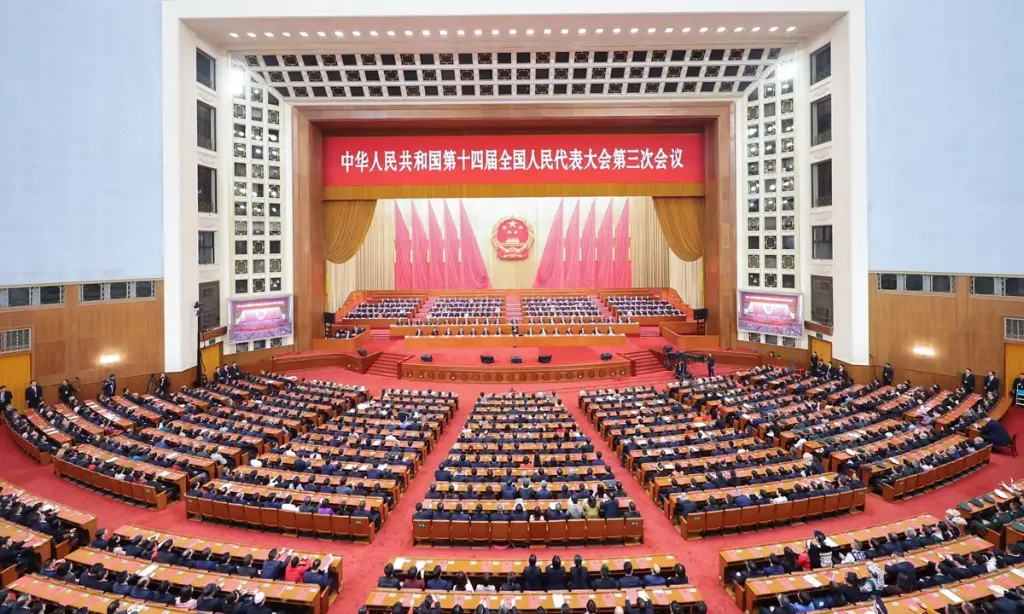At the 2021 National People’s Congress (NPC), China’s annual parliamentary session, Premier Li Keqiang outlined an ambitious target of over 6% economic growth, signaling a strong rebound from the COVID-19 pandemic. Having faced the virus first in December 2019, China implemented strict lockdowns and became a global supplier of medical equipment and vaccines. This resilience has positioned the nation as an economic outlier, achieving growth rates envied by many pandemic-stricken countries. “Our goal is to restore and advance our economy,” Li told nearly 3,000 delegates, gathered under stringent security and health protocols for a week-long session, shortened due to the ongoing health crisis.
Tightening Grip on Hong Kong
The NPC also unveiled plans to strengthen Beijing’s control over Hong Kong, a move that has drawn international scrutiny. Deputy Chairman Wang Chen announced that the Hong Kong Election Committee, dominated by pro-Beijing business leaders, will play a larger role in selecting the territory’s 70-member Legislative Council. This shift aims to curb dissent and align Hong Kong’s governance with Beijing’s priorities. Critics argue this undermines the region’s autonomy, reflecting President Xi Jinping’s broader strategy to assert China’s global influence while facing accusations of suppressing ethnic minorities and democratic freedoms.
Military Modernization Amid Global Tensions
China’s military ambitions were a focal point, with Premier Li emphasizing enhanced “strategic capacity” to safeguard national sovereignty. The NPC approved a significant boost in defense spending, raising concerns among Western nations, particularly the U.S., China’s primary strategic rival. Li underscored the need for “military training and war preparedness” to address multifaceted security risks. Beijing is wary of growing international alliances, such as the Quad (U.S., India, Australia, Japan) and upcoming naval exercises involving the U.S., Japan, and France, which it perceives as efforts to encircle China.
Balancing Climate Goals and Growth
On the environmental front, Li reaffirmed China’s commitment to becoming carbon-neutral by 2060, as pledged by Xi Jinping. However, he avoided setting aggressive targets that could hinder economic progress, opting for measured steps to reduce carbon emissions. “We aim to balance development with sustainability,” Li noted, addressing global criticism while prioritizing economic recovery. China’s role in supplying COVID-19 aid to developing nations was highlighted as a counterpoint to critiques of its domestic policies.
Geopolitical and Technological Ambitions
The NPC underscored China’s long-term goal of global leadership in technology sectors like telecoms and electric vehicles, intensifying trade tensions with the U.S. and Europe. These nations accuse Beijing of unfair market practices, a charge China refutes. The session, held amid tight security, reflected Xi’s vision of reclaiming China’s “rightful place” as a global power, drawing parallels to the nation’s bold leadership in the sci-fi film The Wandering Earth. As China navigates these ambitions, the NPC’s decisions signal a resolute push toward economic, military, and political dominance on the world stage.






